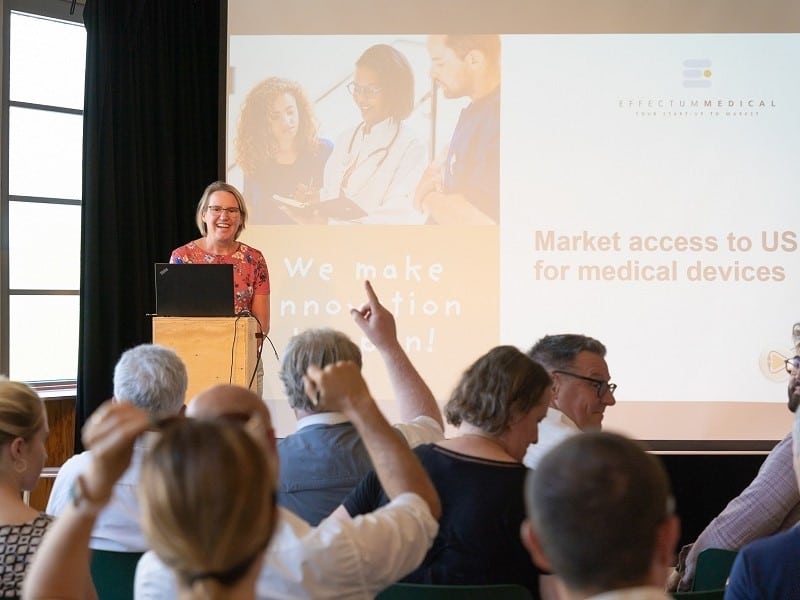
| News
The changing healthcare system in China
03.10.2017
On September 15th 2017, the first Swiss-Chinese Life Sciences Forum took place at Roche in Basel. The event focused on the two key topics of “Challenges, Responses and Opportunities in the Chinese Health Sector” and “Digital health in China”.

Swiss Chinese Life Sciences Forum (img: Mathias Mangold)
The key findings:
China’s healthcare market is poised for substantial growth. As the People’s republic of China (PRC) joined the ICH recently, drug discovery efforts in China and collaborating opportunities for Western companies should be supported. The characteristics of the Chinese health sector, including its hospital-centric system, high out-of-pocket expenses, and reimbursement challenges are expected to remain in place. This drives demand for new insurance products.
Implementing digital solutions is an opportunity to leapfrog the development of improved healthcare services. Managing the complexities across treatments, diseases and patients in general requires digital solutions today. In addition, many of China’s specific healthcare challenges are driving digital medical solutions: Patients in remote regions receive early stage tele diagnosis, or digital tools can allow diagnoses by remote physicians.
The forum’s host, Dr. Beat Krähenmann, Director and Head Group Legal and M&A, Group Structure and Finance, F. Hoffman-LaRoche Ltd., welcomed the participants at Roche’s conference facilities in Basel. The Swiss-Chinese Chamber of Commerce, BaselArea.Swiss, represented by Mr. Gabriel Schweizer, Senior Project Manager Asia, and the FHNW University of Applied Sciences and Arts Northwestern Switzerland jointly organized this forum. Mr. Christoph Brutschin, State councilor of the Canton of Basel-Stadt, emphasized the long-standing relationship of the city of Basel with China, including a city partnership with Shanghai.
Challenges, Responses and Opportunities in the Chinese Health Sector
Prof. Michael Jeive, Head of the Swiss SME Research Center China, FHNW School of Business, structured and moderated the first part of the forum.
Dr. Laurenz Kellenberger, CSO, Basilea Pharmaceutica, elaborated on the changing demographics in China, which lead to an increased demand for healthcare services due to age and the growing middle class. Strong support for the biotechnology industry by the government has led from imitation to innovation and provides new opportunities for partnerships. As China joined the International Council for Harmonisation of Technical Requirements for Pharmaceuticals for Human Use (ICH), clearer paths to drug approval support drug discovery.
China is the second largest market for pharmaceuticals in the world, with a substantial growth potential, according to Mr. Alexander Hardy, Head of Global Product Strategy, F. Hoffmann-La Roche Ltd. An increased focus on productivity, openness to trade and foreign investment, and a willingness to experiment and invest contribute to the positive outlook for the healthcare sector in China. The government’s challenges include the quality of service, reducing access barriers for the rural population and increasing efficiency.
While 95 percent of the population in China have healthcare insurance, approximately one third of the treatment costs must be covered out-of-pocket. That is why a new type of healthcare insurance thrives in the Chinese market: More than 120 million “critical illness insurance” policies are in force. Upon contracting a pre-defined illness like cancer or a cardiovascular disease, the insured patient receives a payout, as Dr. Christoph Nabholz, Head Life & Health R&D, Swiss Re, described.
The panel, with the participation of Dr. Zhang Li, President SCC Life Sciences, agreed that the hospital-centric system would remain in place because other challenges are more pressing.
Digital Health in China
Mr. Felix Sutter, President of the SCCC and Head Asia Business Group, PwC Switzerland, introduced the topic and the participants of the second part of the forum.
Based on diagnostics, various treatment modalities and the power of data, individualized treatment of illnesses should be the target of digital healthcare innovation, according to Dr. Tim M. Jaeger, Global Head Diagnostics information Solutions, F. Hoffmann-La Roche Ltd. New data sources, the initiation of data integration and analytics, and payers focusing more on outcome and value-based care will be the drivers for more effective healthcare systems.
Mr. Michael Frizberg, General Manager of Luye Pharma Group’s European Headquarters in Basel, provided an overview of digital applications in China’s healthcare sector. Around 2000 digital applications are available today, some providing the possibility for early stage tele diagnosis to help patients in isolated regions.
Positive results of “leapfrogging” the way healthcare services are made available can be expected for patients, providers and payers, according to Mr. Sandy Johnston, Advisor Pharmaceutical & Life Sciences Practice, PwC Switzerland. Going from paper-based to digitalization, from physician-centric to patient-centric services, from independent to integrated solutions is part of digital advancement. Providers of digital healthcare solutions face challenges like growing their revenues and coping with frequently shifting government policies and priorities.





